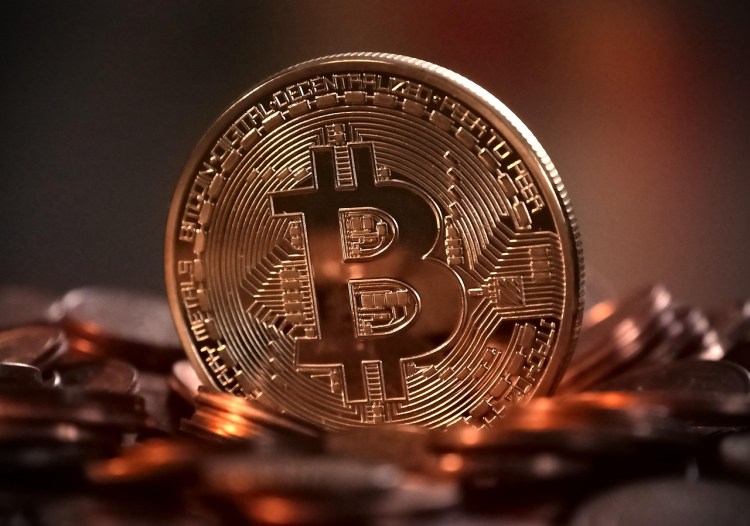Reason to trust

How Our News is Made
Strict editorial policy that focuses on accuracy, relevance, and impartiality
Ad discliamer
Morbi pretium leo et nisl aliquam mollis. Quisque arcu lorem, ultricies quis pellentesque nec, ullamcorper eu odio.
Cryptocurrency’s global popularity and adoption have sparked debates, particularly in the Muslim world, about its halal or haram status. This article delves into the Quran’s investment rules, how they apply to cryptocurrency, opinions on its permissibility. Traders Union experts offer a crypto halal guide, aiding informed decisions.
Cryptocurrency’s Place in Islamic Finance
Spot trading halal or haram? – In the dynamic landscape of Islamic finance, this question has become a pivotal focal point. Cryptocurrency’s emergence has prompted vigorous discussions regarding its compatibility with Islamic principles. Spot trading, a method enabling users to securely purchase and hold digital currency in their wallets, while also facilitating trading, buying, and selling based on current market values, stands as a key aspect of this discourse. Notably, some scholars perceive spot trading as aligned with Halal tenets. In this exploration, the experts delve into the nuances of spot trading’s potential permissibility, shedding light on its role as a potential bridge between the digital realm of cryptocurrency and the ethical considerations of Islamic finance.
An overview of Islamic finance’s main rules
Follow these important financial rules from TU analysts:
- Avoid investing in businesses involved in haram activities (alcohol, gambling, pornography, tobacco, etc.).
- Conduct due diligence to ensure the company’s activities and financial statements are halal.
- Prohibit investing to earn interest as it is considered haram.
- Share profit and loss without receiving interest.
- Avoid companies with over 33% debt compared to market capitalization.
- Do not invest in bonds or interest-driven ventures.
- Avoid buying stocks of companies with high debt (high leverage).
- Adhere to the 5% rule, avoiding companies earning over 5% from haram activities.
- Stay cautious as interpretations of the law may vary, making halal investments differ by location.
Guide to halal cryptocurrency investments
For Muslim investors navigating cryptocurrency, following these tips is essential to ensure a halal approach:
- Use a Halal Cryptocurrency and Broker: Investigate if the broker aligns with Islamic financial laws to trade in halal digital currencies.
- Avoid Trading Futures: Predictive earning through futures trading is considered gambling and haram in Islam.
- Refrain from Staking: Storing coins in a wallet for interest, akin to a savings account, is considered haram.
- Comply with Tax Regulations: Pay taxes on cryptocurrency income as required by your country’s laws.
Cryptocurrency exchanges to invest in
In the world of cryptocurrency exchanges, two prominent options stand out for investors looking to explore the market: Bybit and Binance. Both exchanges offer unique features and advantages that make them appealing choices for trading cryptocurrencies. Additionally, for users seeking alternative options, reputable exchanges like Coinbase or Kraken are also worth considering for their diverse range of supported cryptocurrencies and user-friendly interfaces.
- Bybit: Established in 2018, Bybit is a standalone derivatives trading platform offering inverse and perpetual futures contracts with up to 1:200 leverage. It provides mutual insurance for market participants, offsets for long and short positions, and market depth. Quarterly USD futures are available for various cryptocurrencies.
- Binance: Based in Hong Kong, Binance is one of the world’s largest cryptocurrency exchanges. It leads in daily turnover, user numbers, liquidity, and web traffic. Binance has its own native asset used as the basis gas in its ecosystem.
- Coinbase: stands out as a popular cryptocurrency exchange, particularly favored by newcomers to the trading scene. Its offerings span a range of cryptocurrencies, encompassing Bitcoin, Ethereum, Litecoin, Ripple, BitcoinCash, and more. Both a web version and mobile applications for iOS and Android facilitate trading. Serving users in 100 countries, Coinbase boasts a community of over 43 million active traders. The platform’s total assets exceed USD 90 billion. Unique educational programs offered by the exchange enable users to enhance their crypto market skills and earn while learning. Explore the workings of Coinbase and its exchange mechanism.
- Kraken: Established in 2011 in San Francisco, Kraken holds a valid global license. Its multilingual platform, lacking a call center but with 24/7 technical support, serves major languages. Kraken offers extensive crypto options, including hundreds of cryptocurrencies, stablecoins, and seven fiat currencies for seamless trading across crypto-crypto and crypto-fiat pairs. Trading limits are rare, barring substantial daily withdrawals up to $500,000 USD.
Are cryptocurrencies legal in Muslim countries?
Analysts at TU stress that cryptocurrency has been met with both support and criticism, leading to ongoing debates about its usability and legality. While many countries have embraced digital coins and introduced regulations to govern their use, the stance in the Muslim world is mixed. Some nations, like the UAE and Bahrain, permit cryptocurrency usage, while others, including Bangladesh, Indonesia, Egypt, Algeria, Iraq, Libya, and Morocco, have laws and fatwas prohibiting or restricting its adoption and trading.
Conclusion
Cryptocurrency sparks debates in the Muslim world due to halal or haram concerns. As more Muslim scholars and authorities engage with the intricacies of cryptocurrency, the discussion about its halal or haram nature will undoubtedly evolve, leading to greater clarity and guidance for the community. In the meantime, Traders Union analysts’ recommendations serve as a valuable compass for Muslim investors seeking to navigate the uncharted waters of digital currencies with integrity and compliance.
Disclaimer: This is a paid release. The statements, views and opinions expressed in this column are solely those of the content provider and do not necessarily represent those of NewsBTC. NewsBTC does not guarantee the accuracy or timeliness of information available in such content. Do your research and invest at your own risk.



























